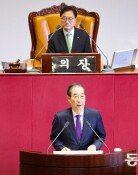[Opinion] Cultural Revolution No More
There was a 15-year old boy who had to raise pumpkins on Gobi Desert. For six years after the Chinese Cultural Revolution swept the country, his only hope was to study. After working hard, he read whatever books he could get hold of at night. He learned English by listening to the VOA (Voice of America).
Waijian Shan, 51, is an executive director of New Bridge Capital, a well-known asset management company. He is one of those who are taking the lead of instilling capitalism and planting advanced investment techniques into China, a financially underdeveloped country. He said If I hadnt been prepared, I would have deeply regretted it. The Economist magazine depicted him as Chinas patient crusader.
Chinese President Hu Jintao, who was a promising political advisor and majored in the department of science and engineering at Tsinghua University, was sent to a labor camp reorganizing squad and cleaned restrooms in the midst of the Cultural Revolution. Other fourth generation leaders, including Wu Bangguo, chairman of the NPC (the National Peoples Congress) Standing Committee, who also went to a college of science and engineering at Tsinghua University, were also thrown out.
Even though the Cultural Revolution was supposed to attack intellectuals and break down capitalistic materialism, it failed to kill knowledge and capitalism. Nine members of the Standing Committee of the Political Bureau of CPC (the Communist Party of China) are all technocrats who were once engineers.
If the Cultural Revolution comes to Korea, it will become a dynamic cultural revolution. The Communist Party of China already labeled the Cultural Revolution as nonhuman in 1981, but it still serves as a mentor for some of the so-called democratization power in Korea. Groups which stick to an obsolete ideology are intellectually lazy and not knowledgeable, and cannot live up to the globalization era. The atmosphere smacks of the Cultural Revolution, where different thoughts are not accepted.
Our model cannot be compared to Chinese model, which developed based on a communist dictatorship. How long China, with Neo-Leninism, which suppresses political objections on the pretext of a harmonized society, will keep growing also remains to be seen. It is regrettable that some of our people are steeped in anti-knowledge and pro-cultural revolution, while China had turned its back on the Cultural Revolution and toward knowledge and pragmatism a long time ago.
Kim Sun Deok, Editorial Writer, yuri@donga.com







